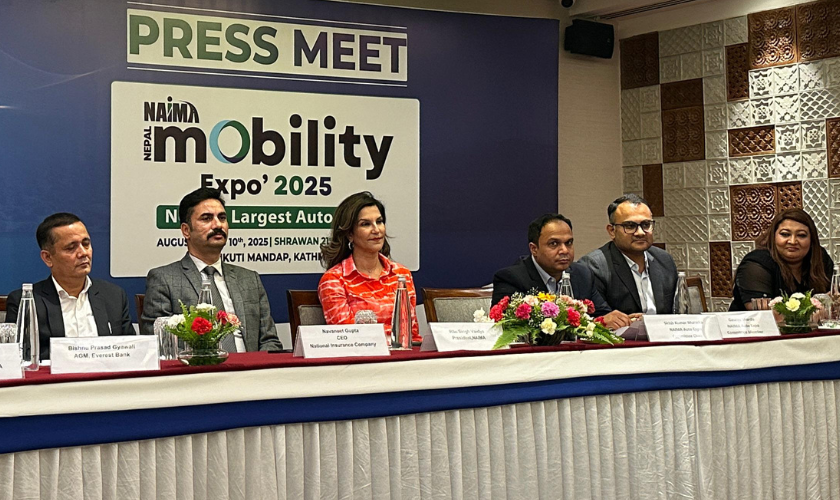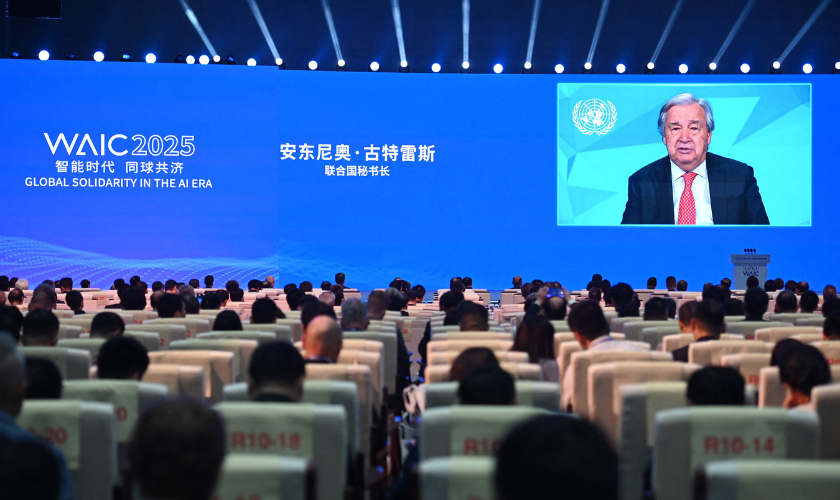For as long as we can remember, the story of success in Nepal has followed a familiar script: grow up here, go abroad and send money home. For decades, it worked. In 2023 alone, Nepali migrant workers sent back over $11 billion in remittances—most from blue-collar jobs. That accounted for 26.6% of Nepal’s GDP, one of the highest remittance-to-GDP ratios in the world.
This flow of money stabilized Nepal’s economy and supported millions of families. But the cost has been steep. We built a system that exports our people abroad to do work that rarely reflects their full potential, exporting labor instead of talent, and survival instead of opportunity. Somewhere along the way, we began to equate success with leaving Nepal behind.
But something has changed in recent years. Remote work, once a privilege reserved for tech workers in Silicon Valley or consultants in London, has gone mainstream. The COVID-19 pandemic didn’t just move offices online, it redefined where work belongs. Today, work is where the Wi-Fi is, and that changes everything for Nepal. If we play our cards right, we can shift from exporting labor to selling talent globally.
Remote Work Is The New Normal
Before 2020, fewer than 5% of full-time employees in high-income economies worked remotely. At the peak of COVID-19, that number soared to 45%, fundamentally shifting workplace expectations. While some companies have returned to the office, hybrid and remote models are here to stay.
Companies like GitLab and Automattic have gone fully remote. Tech giants like Google and Amazon have adopted flexible hybrid models. These firms are no longer hiring by ZIP code—they are hiring by skill.
This shift is powered by a strong ecosystem of digital collaboration tools like Slack, Notion, Trello, Zoom and Google Workspace. These platforms allow teams to work across continents in real time. AI and cloud infrastructure now make it possible to execute complex projects with minimal in-person oversight. Now, a software developer in Pokhara and a designer in Ilam can collaborate on the same project as a team in San Francisco.
This flattening of the global workforce opens a door that Nepal has never truly walked through until now.
Digital Infrastructure: Strong Signals, Uneven Terrain
Nepal’s digital journey has shown remarkable progress. As of early 2024, the Nepal Telecommunications Authority (NTA) reported internet penetration at 95.7%, with mobile subscriptions outnumbering the population.

But beneath these numbers lies a more complex reality: only 55.8% of the population actively uses the internet. This gap highlights deeper issues—affordability, connectivity quality and digital literacy—that limit meaningful access.
Usability is another major hurdle. In rural areas, inconsistent electricity, poor bandwidth and a lack of devices make full digital participation difficult. Despite high nominal access, Nepal ranked 89th out of 108 countries in the Global Remote Work Index 2023, largely due to infrastructure and legal hurdles.
Cultural perceptions also play a major role. In many multigenerational households, remote work is still seen as less legitimate than traditional office jobs. Some employers remain skeptical, assuming that productivity requires physical oversight. Many aspiring remote workers lack essential soft skills, from time management and proposal writing to client communication.
The potential is real. But without the right infrastructure and norms, potential alone will not translate into prosperity.
Freelancing: Nepal’s Growing Digital Export Sector
While institutions may still be catching up, a quiet revolution is already underway—freelancing. Between 2019 and 2022, Nepal’s digital service exports skyrocketed from $196 million to over $515 million, growing more than 160% in just three years. Much of this growth came not from corporations, but from individual freelancers working out of bedrooms, cafes or co-working spaces.
Platforms like Upwork, Fiverr, Freelancer and Toptal have become virtual marketplaces where thousands of Nepalis now compete and succeed on a global stage. On Upwork alone, more than 17,000 Nepali freelancers are active, offering services ranging from graphic design and content writing to virtual assistance, SEO and AI data labeling.
Interviews with young professionals working from coworking spaces in Kathmandu reveal why this model is catching on. They highlighted the ability to earn well, maintain autonomy, and stay close to home, opportunities that felt out of reach just a few years ago.
For many, freelancing is more than a career; it is a lifestyle. It allows young people to stay close to their families, reduces migration and earn in stronger currencies, which are being spent locally, invested in education, used to feed families, pay bills or even start businesses. The economy stays in Nepal, and perhaps most importantly, dignity stays here, too.
This is a different kind of migration, not across borders, but across bandwidth. It may be one of the most powerful economic shifts Nepal has seen in decades.
Capital City No Longer the Only Option
For generations, Kathmandu felt like the only place where ambition could thrive. Jobs, talent and ideas were flowing into the capital city, leaving the rest of the country behind. But that is starting to change.
Thanks to improved connectivity, solar-powered backups and a growing remote-first mindset, cities like Butwal, Dhangadhi and Biratnagar are starting to build their momentum with coworking spaces popping up. They are not just offering desks and Wi-Fi, but creating ecosystems. Here, people swap skills, build networks and start ventures that keep talent rooted in place.

Many are choosing to stay closer to home, or even return from the capital, drawn not just by affordability, but by a lifestyle that blends productivity with purpose. In these spaces, young Nepalis talk about earning well, working on global projects, and building lives that don’t require leaving everything behind. This shift is not just logistical, it is cultural. When work is no longer tied to a location, ambition can spread. And as it does, it quietly begins to reshape where opportunity lives and what a successful life in Nepal can look like.
This quiet revolution in remote work has already begun to reshape Nepal’s economic identity from a country that exports labor to one that exports skill and creativity. With the right support, this new model can empower Nepalis to thrive globally, without ever leaving home.
But as the world embraces remote-first lifestyles, Nepal has another opportunity it has not fully explored yet: becoming a destination for remote workers from abroad.
Welcoming the World: Nepal’s Digital Nomad Opportunity
Remote work is not just about letting Nepalis work for the world; it is also a chance to let the world work from Nepal. Countries like Portugal, Estonia and Indonesia have already capitalized on this by offering digital nomad visas. These programs attract long-term, self-sufficient visitors who spend money, support local economies and enrich cultural exchange, all without competing for local jobs.
Nepal offers many ingredients for success: stunning landscapes, cultural depth and affordability. Influential travel bloggers like Bucketlist Bri have explored working remotely from Kathmandu and have highlighted challenges such as air pollution, inconsistent Wi-Fi and a lack of co-working spaces. They, however, have also emphasized Kathmandu’s unique energy, spiritual richness and transformative potential for those willing to adapt.
Despite this growing international interest, Nepal still lacks a formal digital nomad visa or legal structure to welcome remote professionals. A well-designed visa will attract the right kind of long-term visitors who are entrepreneurial, self-funded, globally connected and who contribute to local economies without taking local jobs. With the right combination of policy support, infrastructure, and targeted incentives, Nepal has the potential to grow into South Asia’s most compelling remote work destination.
Turning Possibility Into Strategy
To fully unlock Nepal’s remote work potential, both for Nepali professionals and foreign remote workers, the country must move beyond ambition and focus on actionable reforms. While the global digital economy presents unprecedented opportunities, unlocking its benefits for us in Nepal requires targeted policy interventions and infrastructure upgrades. For remote work to become a long-term economic pillar, Nepal must address key friction points. Some of them are outlined below:
1. Legal Digital Payments
Freelancers and remote workers in Nepal still face major barriers in receiving international payments. Platforms like PayPal and Stripe are still inaccessible. Earlier this year, the Nepal Rastra Bank (NRB) unveiled plans to bring PayPal to Nepal through Standard Chartered Bank and FonePay. However, there has been no progress in implementation of the plan. Without access to such global platforms, Nepali freelancers are at a disadvantage. Supporting alternatives like Wise and Payoneer, alongside clear tax guidelines, is essential to unlocking full participation in the global digital economy. That said, there have been some meaningful steps forward. A flat 5% tax on freelance income has eased compliance, especially compared to salaried workers who face rates as high as 35%. It is a modest sign that the system is starting to adapt to the realities of digital work.

2. Remote Work Visa Scheme
A targeted visa for digital nomads will allow Nepal to benefit from a global workforce seeking affordability and nature. Estonia’s digital nomad visa or Indonesia’s "Second Home Visa" could provide a template for Nepal.
3. Rural Infrastructure Investment
Investing in reliable broadband, solar-powered backups and coworking hubs in scenic but underserved areas like Ilam, Rara or Bandipur can curb outmigration and attract foreign remote workers and tourists, unlocking local and international economic potential.
4. Workforce Upskilling
Soft skills are just as crucial as technical ones. Training programs must focus on business communication, project delivery, time management and remote work know-how, not just technical expertise.
5. Cultural Normalization
A public campaign showcasing remote work success stories can help change perceptions about remote work. Highlighting real Nepalis earning in dollars, whether freelancing or working remotely for Nepali companies serving global clients while living in Dhangadhi or Bhojpur, would help mainstream the model and inspire others.
Window of Opportunity
The world now works from anywhere, with a laptop and Wi-Fi. For Nepal, this shift is more than a trend; it is a chance to build prosperity without brain drain.
Nepal has what it takes: a young, tech-savvy workforce, rising connectivity and global networks. But potential means little without action. Whether it is a developer in Dhangadhi serving clients abroad, or a remote designer from Berlin working from Bhaktapur, Nepal’s future lies in embracing this dual momentum. The future does not require leaving Nepal. It requires reimagining what is possible here. The window is open; what we do next will define a generation.
(Saguni Thapa, Sandisha Shrestha and Prajwal Gadtaula are analysts at Business Brainz, a research and insight firm empowering B2B sales and marketing teams globally from Nepal.)
(This opinion article was originally published in June 2025 issue of New Business Age Magazine.)











